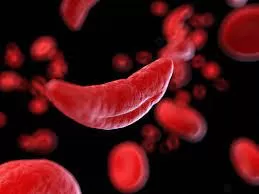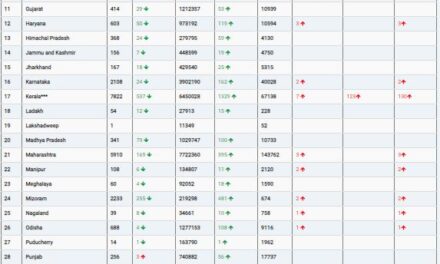A comprehensive literature review has debunked longstanding myths surrounding sickle cell trait (SCT) and sudden death, with findings published in the journal Blood.
A systematic review of existing research has found no evidence to support claims that individuals with sickle cell trait (SCT) face an increased risk of sudden death due to physical exertion, except in cases involving rhabdomyolysis (muscle breakdown) or heat injury. Additionally, there is no high-level evidence suggesting that SCT causes acute pain crises.
These findings informed the American Society of Hematology’s (ASH) updated position statement on SCT, which aims to dispel medical misinformation.
“SCT has long been misunderstood, fueling widespread misinformation and medically inaccurate claims that it can lead to sudden death. This misconception has been especially prominent in cases of Black men with SCT,” stated Dr. Belinda Avalos, President of ASH. “The Society aims to further promote accurate information to protect and empower affected communities.”
Understanding Sickle Cell Trait and Its Misconceptions
Individuals with SCT inherit one copy of the gene associated with sickle cell disease (SCD). Unlike SCD, which is a serious blood disorder causing misshapen blood cells that can lead to complications such as blockages, infections, and acute pain crises, SCT is not a disease. People with SCT do not develop SCD and generally do not experience related health issues.
SCT is common worldwide, affecting over 100 million individuals, including 8–10% of Black Americans. Despite its prevalence, misconceptions have persisted, often influencing medical diagnoses and post-mortem reports.
Findings from the Systematic Review
A panel of experts, including hematologists and forensic pathologists, conducted an extensive review of 1,474 studies examining SCT, pain crises, and mortality. Only seven studies met the criteria for inclusion, with just one addressing death in individuals with SCT. This study, involving active-duty U.S. soldiers, found that while SCT was linked to a higher risk of exertional rhabdomyolysis, it was not associated with an increased risk of death.
After military precautions were implemented to prevent heat-related injuries, the adjusted risk of death in individuals with SCT was found to be no different from those without SCT.
“To date, this is the most authoritative and definitive systematic review on this subject,” said Dr. Michael R. DeBaun, lead author and professor at Vanderbilt University School of Medicine. “This review shows that any cause of death attributed to SCT is not substantiated by medical evidence.”
Revising Medical Diagnoses and Post-Mortem Examinations
The review found several cases in which the presence of sickled blood cells at autopsy was mistakenly cited as evidence of death caused by SCT. However, no studies provided human data supporting this hypothesis.
Dr. Lachelle D. Weeks, a co-author and assistant professor at Harvard Medical School, emphasized the importance of evidence-based diagnoses. “Medicine, even in the post-mortem setting, is science. Our diagnoses must be backed by medical evidence. Given these findings, we owe it to individuals with SCT to ensure that autopsies include checks for rhabdomyolysis and other medical or traumatic causes of death.”
Implications and the Need for Further Research
The findings led ASH to revise its official position, stating that listing “sickle cell crisis” or “sickle cell trait” as a cause of death on an autopsy report is medically inaccurate without direct medical evidence.
Despite the lack of high-quality peer-reviewed data, experts hope this review will encourage further research into SCT and its implications.
For more details on ASH’s updated position and advocacy efforts, visit hematology.org/advocacy.
Disclaimer:
This article is based on scientific research and expert reviews published in the journal Blood. It does not provide medical advice, diagnosis, or treatment. Readers should consult healthcare professionals for individual concerns related to SCT.












